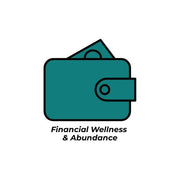Mental Health & Resilience

Strategies for Managing Anxiety, Emotional Healing, and Building Inner Strength
In today’s demanding world, mental health challenges like anxiety, overwhelm, and emotional fatigue are more common than ever. But within every challenge lies the opportunity to grow stronger, more self-aware, and more grounded in our truth.
This blog explores practical and empowering tools for cultivating mental resilience, including affirmations, meditation, self-awareness, and emotional healing.
Understanding Mental Resilience
Resilience is the ability to bounce back from setbacks, regulate your emotions, and adapt to change. It’s not about being unshakable—it’s about learning to recover and rise, even when life feels heavy.
Mental resilience is built through consistent self-care, healthy coping mechanisms, and a deep connection with your inner world.
Managing Anxiety Mindfully
Anxiety often stems from the mind trying to predict or control the future. The key is to bring yourself back to the present.
Grounding strategies for anxious moments:
- Box Breathing: Inhale for 4, hold for 4, exhale for 4, hold for 4. Repeat.
- 5-4-3-2-1 Technique: Notice 5 things you see, 4 things you feel, 3 things you hear, 2 things you smell, 1 thing you taste.
- Journaling: Write out your worries without editing or judging.
Anxiety doesn’t have to define you. It’s a signal—not a sentence.
Affirmations to Support Mental Health
Affirmations can retrain the brain and soothe emotional triggers. When spoken regularly, they create an internal environment of calm and clarity.
Try these:
- “I am safe in this moment.”
- “I trust my ability to handle what comes.”
- “My mind is a space of peace and resilience.”
Repeat your affirmations during meditation, before sleep, or whenever you need a mental reset.
The Power of Meditation for Emotional Stability
Meditation helps calm the mind, regulate emotions, and increase awareness of your inner landscape. It’s a gentle but powerful way to strengthen mental and emotional resilience.
Simple Resilience Meditation:
- Find a quiet space and close your eyes.
- Breathe deeply and repeat the affirmation: “I am grounded, I am strong.”
- When thoughts arise, return to the breath and your chosen words.
Even 5 minutes a day can make a difference over time.
Emotional Healing: Honoring What Hurts
Resilience doesn’t mean avoiding pain—it means feeling it fully, then learning and growing from it. Emotional healing begins when we allow ourselves to process rather than suppress.
Ways to support emotional healing:
- Create space for feeling, without judgment.
- Talk to a trusted friend, therapist, or support group.
- Engage in healing practices like breathwork, tapping (EFT), or movement.
Healing is not linear. Some days will be heavy. Others, light. Let both be okay.
Self-Awareness: The Foundation of Growth
The more you understand your thoughts, behaviors, and patterns, the more power you have to shift them. Self-awareness helps you recognize triggers, set boundaries, and choose how you respond—rather than react.
Ask yourself:
- What am I feeling right now?
- What does my body need?
- Is this thought true, or is it a story?
This kind, curious awareness is what fuels long-term resilience.
Final Thoughts: Your Inner Strength Is Always Within Reach
Mental health is a journey, not a destination. And resilience isn’t something you’re born with—it’s something you build, one breath, one thought, one moment of compassion at a time.
By combining tools like affirmations, meditation, emotional healing, and self-awareness, you create a supportive foundation for a more grounded, resilient life.
Need support on your mental wellness journey?
Explore our guided meditations, healing sessions, and tools designed to help you reconnect with your strength and inner peace.






